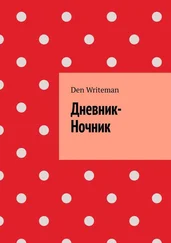Subsequently we went to tea for three more Sundays. On the last visit I think Mother must have taken John to the lavatory for I was left alone with Great-grandpa Wilson, still rocking, still puffing and glaring at the fire. I just stood and watched him. I was good at standing and watching—I’d had enough practice at home. Then Great-grandpa Wilson took the pipe out of his mouth and the old man I’d previously thought incapable of speech broke his silence, but it was as if I wasn’t there—I’d had enough practice at that as well. Taking the pipe out of his mouth, he said, ‘Last night she didn’t come home till after nine o’clock.’ He put his pipe back in his mouth, puffed for a while, took it out again and said, ‘I reckon she’s got a fancy man somewhere,’ and that was the end of what could scarcely be described as a conversation—in fact I wouldn’t have dared open my mouth. I just stood and watched, and his stare never left the fire. Many, many years later, when I was working for my living, Great-grandpa Wilson’s words came back to me, and with a flash of insight I realised that he had been referring to Grandma Stacey, who was seventy-two at the time; and on mulling over those awful prunes-and-custard ordeals I realised that Great-grandpa Wilson must have been born in about 1836. What a wealth of memories must have been staring back at him from the fire! Victoria was Queen when he was young, but did Great-grandpa Wilson know this? After all, there was no such thing as a wireless in those far-off days; he would have been middle-aged before it had been invented. He must have been aware that Prince Albert, Victoria’s consort, was German, but when Albert died an early death and the whole country mourned, how would Great-grandpa Wilson have learned of this tragic event? There were few newspapers and probably none at all in Oldham, which in those days was mostly forest and grassland, and certainly there were no newsagents. Perhaps information was conveyed by the town crier, but then would Oldham have been big enough to warrant such a luxury, and how did the town crier get the news in the first place? Questions, questions, questions. In the middle of the nineteenth century there were no such ‘get-abouts’ as the motor car, trams were yet to come, and there would have been no roads for them to travel on; horses and coaches were the only means of transport and then only for the gentry. To be abroad at night when there were no lights to illuminate the paths was to make oneself vulnerable to rogues and vagabonds. What a rich tapestry of first-hand knowledge stared back at Grandpa Wilson from the fire! I would have sat at his feet just to listen, anything, yet the only time he spoke to me was to slag off Grandma Stacey, his seventy-two-year-old daughter who hadn’t come home till after nine o’clock. What was he afraid of—a highwayman? Oh, what a missed opportunity!
The next time I saw Great-grandpa Wilson was when Grandma Stacey took me by the hand and led me into a quiet bedroom to pay my respects to him as he lay peacefully in his coffin. Other people whom I’d never met stood around in quiet groups, but no one seemed particularly upset. When Grandma Stacey took me back downstairs, a different drama was taking place. I was fascinated as I watched one of the mourners—a large, untidy man in a bowler hat, with a large pointed nose with a large dewdrop hanging on the end of it reluctant to leave home—rummaging in the shelves of a magnificent bookcase, occasionally stuffing his pockets with anything that took his fancy. It later turned out that he was one of the uncles—so my father told me about a week after the funeral. Staring into the fire he said bitterly, ‘Your Great-grandpa Wilson promised me the harmonium.’ As there were only the two of us present, I assumed he was addressing me. After a time he went on, ‘Your Uncle Albert pinched it,’ and, as if to clinch his case, he added, ‘He was seen pushing a hand cart up Waterloo Street and that harmonium was roped on to it.’ I remember thinking, ‘Thank God for Uncle Albert’: the last thing we needed at our house was a harmonium, and Dad struggling to play every night when he came home from work, his feet going up and down on the treadles like a demented cyclist on an exercise bike, his head bowed over a sheet of music he couldn’t understand.
Some days later Dad’s words came back to me. ‘He promised me the harmonium’, he’d said, and he’d stressed the word ‘me’ as if he was entitled to it, but to my knowledge he’d never met the Wilsons or Grandma Stacey; nor did he accompany us for our prunes and custard. More importantly, he hadn’t gone with me to look at Great-grandpa Wilson in his coffin. So why should the old man promise him the harmonium? I gave up there, and I still didn’t know who Grandma Stacey, Great-grandpa Wilson and Great-grandma Wilson belonged to.
Children when I was young were generally predictable. For instance, if we were walking sedately anywhere with a solemn expression on our faces it would be almost certain that we were on our way to school, church or the doctor—in other words a destination that was mundane, dutiful, boring or simply somewhere we weren’t keen to arrive at; but if our target was pleasurable, we ran, and we enjoyed the run, full of excited, pleasant thoughts of where we were going.
So it was with John and me every Tuesday during the summer holidays, when Grandma Ashton baked bread and muffins. From home to Royton seemed to us like miles, and for little legs it was, but we ran all the way, up Featherstall Road, turning left at the Queens, along Oldham Road past Boundary Park Hospital and Sheep’s Foot Lane, which led down to the workhouse next to the lunatic asylum and Boundary Park, the home ground of Oldham Athletic Football Club. We were now halfway to Houghton Street, where the Ashtons lived at the foot of Oldham Edge. As we turned into Houghton Street we could smell the warm loaves and muffins, which gave us a fillip for the last fifty yards. Breathless and flushed, we raced through the open door, John to fling his arms around the knees of Grandma Ashton, who held her arms wide so as not to embrace him in her flour-caked arms.
Grandma Ashton wasn’t thin and austere like Grandma Stacey but dumpy and warm, always with a tired smile on her face, wearied by years of caring, feeding and bringing up her daughters, Auntie Emmy, Auntie Edna and of course our mother, Florrie. Her only son, Stanley, had been killed at Mons during the Great War and I don’t think he had been twenty years old. Grandma Ashton was the rock upon which the whole family depended. Granddad Ashton always seemed to be sitting by the fireplace, even in summer, and like Great-grandpa Wilson, staring into the glowing coals, a lopsided grin on his face.
The fireplace was the focal point of most households then, and even some of the poorest managed to find coal. During the winter our mother and father sat on each side of the grate, us children standing, the gas mantle flickering behind us as the wind whistled malevolently through the keyhole of the back door. Sadly in the present day the fire has been replaced by central heating, paradoxically warm yet heartless, and the fireplace is no longer the focal point of a room. Again regretfully families now sit grouped round the television set and this modern world is no better for the change. In the burning coals you could see whatever picture you wished, but from a television you only get what you are given.
Now I’ve got that off my chest, back to Grandma Ashton’s. Whenever she baked, there was always a small lump of dough for John and me, which we shaped into little men; currants for buttons and eyes, then into the oven with them. I really looked forward to going to Grandma Ashton’s. It was fun, especially once when John and I stayed the night. It was a great adventure, sleeping in a strange bed, and when the night lightened into morning we were yacketing excitedly together when the door opened and Auntie Emmy and Auntie Edna, still in their nighties, sprang into the room, Auntie Edna wielding a sabre. We dived under the covers, shivering with fright, and screaming for Auntie Edna to spare us, while Auntie Emmy was laughing fit to bust.
Читать дальше












